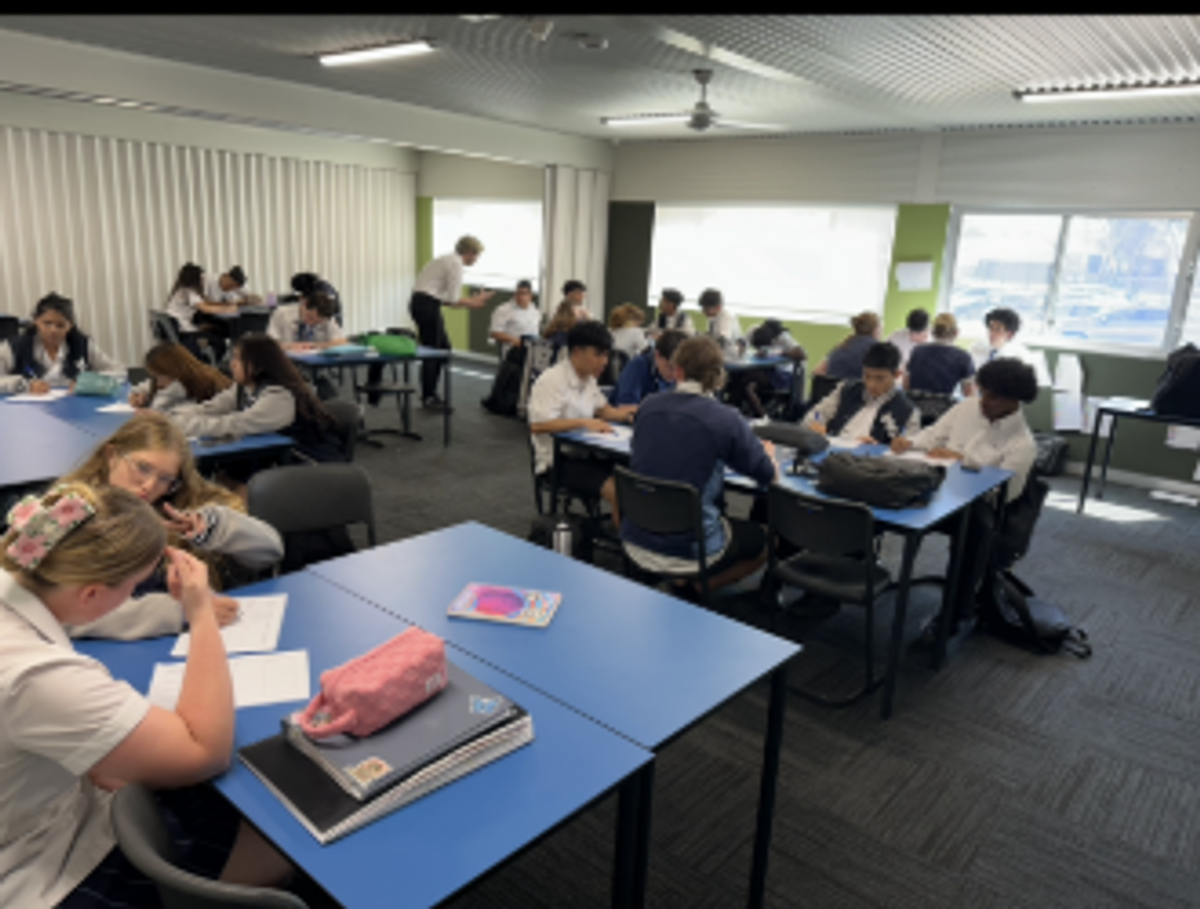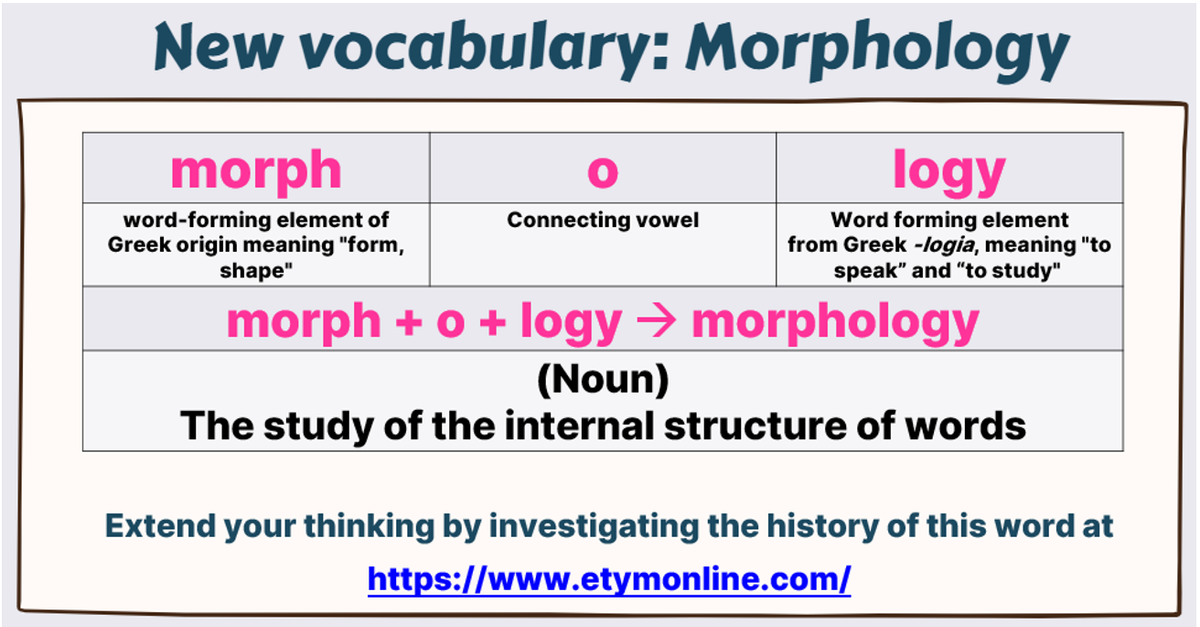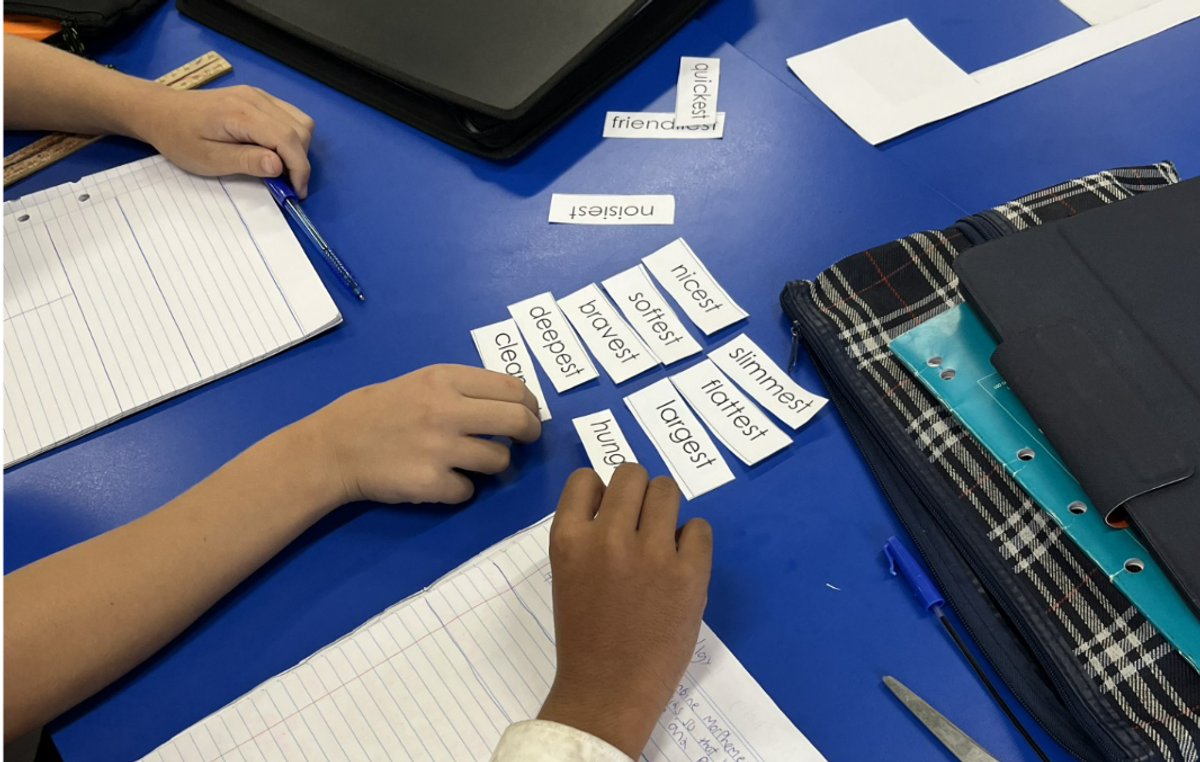English

This term our students started the school year with commitment and dedication to reading and writing in their English classrooms.
Our Year 7 students explored the art of storytelling by reading The Assist, a compelling narrative that sparked discussions about resilience and teamwork. Inspired by the text, they crafted their own flash narratives. Our year 7 English team also worked with our interventions team to implement a strong Morphology curriculum, read more about this in our highlights below!
Year 8s immersed themselves in dystopian fiction, analysing The Giver and its themes of control, memory, and individual freedom. Building on their understanding of the genre, they wrote their own texts, creating unique dystopian worlds.
Year 9 delved into personal and cultural identity through the Growing Up in Australia anthology. They reflected on their own experiences and perspectives, using these insights to craft personal narratives about growing up, capturing moments of change, resilience, and self-discovery.
Year 10 examined the importance of human connection, focusing on how individuals relate to communities, places and to one another. Through various writing tasks, they expressed their own experiences, values, and insights, developing thoughtful and meaningful pieces that highlight their opinions about how we connect as humans.
Our VCE students tackled complex and timely themes of the future and protest, drawing inspiration from literature, history, their own experiences and contemporary issues. They developed opinion and reflective texts that explored visions of change, social movements, and the power of language to inspire action.
Some extra special highlights in the English space
VHAP
This term, 6 of our year 8 students, Jae-Denn Edano, Anastasia Garvan, Maninoa Nanai, Cima Shaikh, Ryliegh Woodhuse and, Ajlin Zulovic, participated in the Victorian High Abilities Program, where Ms. Delorenzo led our students in an extended study of the novel HIVE, deepening their critical thinking and literary analysis.
Year 12 After school support group
We are extremely proud of our Year 12 English students, who have shown outstanding dedication by attending the English Support Group after school with Mr. Kelly and Mr. Brites. The sessions have been buzzing and productive with over 25 students participating weekly. We have even had visits from some of our past year 12 students from our 2024 graduating class to share their insights and wisdom.
NAPLAN
Our years 7 and 9 students demonstrated their writing skills by completing the NAPLAN writing assessment back in week 7. They applied their understanding of structure, language, and creativity to construct narrative stories under timed conditions.
The magic of morphology in year 7 at MSC!
This year has seen the introduction of an explicit morphology program for our year 7 cohort. In the context of reading instruction, morphology refers to the study of word formation patterns and how words are structured by their meaningful parts (prefixes, roots, and suffixes).
Incorporating explicit morphology instruction into the curriculum is important because in understanding the structure of words, how they are formed, and how they relate to each other, vocabulary development, reading comprehension, and spelling skills can significantly improve.
During timetabled English sessions in the library, year 7 students are learning to recognize patterns and relationships between words, and how morphemes (the smallest meaningful units of language) combine to form words. Further into the year, students will also delve into the fascinating world of etymology.
Students have been engaging in robust discussions about words parts, while enthusiastically participating in morphology sessions and applying new and prior knowledge. During one lesson, a student proudly proclaimed that he feels like a “word detective”, which is a prefect description of what students become when identifying and analysing the structure and formation of words.
To help your child to strengthen their understanding of morphology, encourage them to break down unfamiliar words into morphemes (prefixes, suffixes and root words) when reading both fiction and non-fiction texts.
Looking forward to Term 2
Debating Club:
We’re also excited to announce that Debating Club is starting this week and will continue into Term 2—thank you, Ms Delorenzo and Milka Rezene, for your leadership in this!
Junior English
Our junior English students will begin studying arguments in Term 2. Our year 7s will be writing persuasive writing pieces that highlight a chosen hero. Our year 8 students will study and analyse how people use social media to persuade and our year 9 students will analyse opinion texts about marginalisation and complete exams in week 8.
Senior English
Our senior English students have a big term of learning ahead where they will complete two outcomes of study and their semester 1 exams. They will begin the term by analysing texts before moving into exams and presenting persuasive speeches. Our year 10s will study a Shakespeare classic, ‘Macbeth’ and continue to learn the craft of analytical writing. Our year 11s will be studying the film ‘Little Miss Sunshine’ and construct personal-analytical hybrid essays. Finally, our year 12s will complete their studies on Sophocles’ ‘Oedipus the King’ and complete unit 3 of their final year of study.
We look forward to another term of learning in our English classrooms in Term 2.



